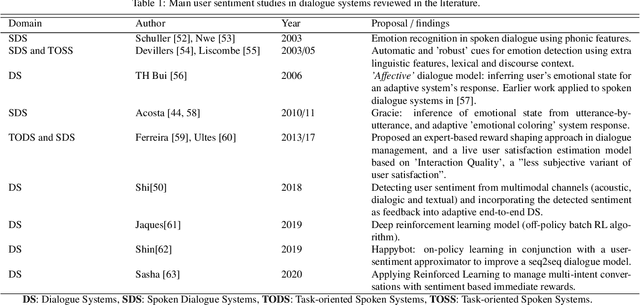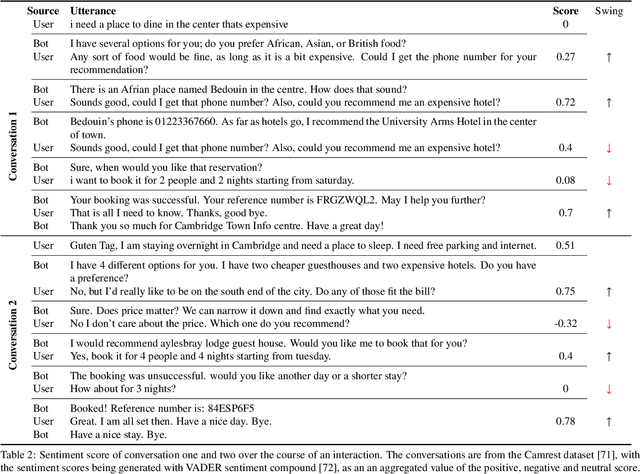Steve Battle
Simulated Autopoiesis in Liquid Automata
Jan 15, 2024Abstract:We present a novel form of Liquid Automata, using this to simulate autopoiesis, whereby living machines self-organise in the physical realm. This simulation is based on an earlier Cellular Automaton described by Francisco Varela. The basis of Liquid Automata is a particle simulation with additional rules about how particles are transformed on collision with other particles. Unlike cellular automata, there is no fixed grid or time-step, only particles moving about and colliding with each other in a continuous space/time.
Task-oriented Dialogue Systems: performance vs. quality-optima, a review
Dec 21, 2021



Abstract:Task-oriented dialogue systems (TODS) are continuing to rise in popularity as various industries find ways to effectively harness their capabilities, saving both time and money. However, even state-of-the-art TODS are not yet reaching their full potential. TODS typically have a primary design focus on completing the task at hand, so the metric of task-resolution should take priority. Other conversational quality attributes that may point to the success, or otherwise, of the dialogue, may be ignored. This can cause interactions between human and dialogue system that leave the user dissatisfied or frustrated. This paper explores the literature on evaluative frameworks of dialogue systems and the role of conversational quality attributes in dialogue systems, looking at if, how, and where they are utilised, and examining their correlation with the performance of the dialogue system.
 Add to Chrome
Add to Chrome Add to Firefox
Add to Firefox Add to Edge
Add to Edge